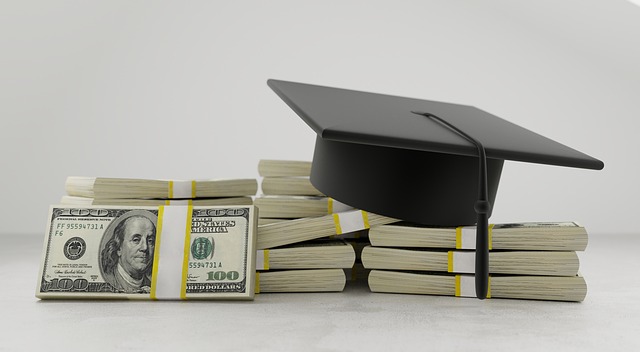You’ve just graduated from college. You’re excited to start a new career. What you’re not excited to do, however, is pay off these massive college loans.
So, you’re wondering: what’s the quickest way to get the job done? Ask and ‘ye shall receive. Here’s how to quickly pay off student loans.
1. Track Your Spending
First and foremost, you need to track your spending. Tracking your spending is important for two reasons: 1. it allows you to see where your money is going, and 2. it helps you to practice discipline with your money.
For instance, let’s say you’re spending $300 a month on take-out food. If you didn’t track this, you probably wouldn’t notice the actual impact that it’s having on your income. However, by doing so, you can see that there’s plenty of more money that could be put toward your loans.
There are a number of ways to track your spending. You could use an Excel spreadsheet; you could add up all of your expenses at the end of each month; you could write each expense down on a piece of paper.
However, in this day and age, the best option is to make use of a budgeting app. This way, the tracking of your spending will be automated. There are all sorts of budgeting apps available, so give a few a try and see which works best.
2. Pay as Much as Possible
Now, this may seem obvious, but, if you want to pay off your loans quickly, you should put as much money towards them as possible. This works on two fronts: 1. it allows you to more quickly eliminate your principal balance, and 2. it allows you to eliminate interest more quickly.
Remember: interest is based on your total remaining balance. So, each time you make a payment, your total amount of monthly interest owed goes down. Paying $750 a month as opposed to $500 will eliminate your interest more quickly, resulting in less expenditure over time.
So, if you have a choice between buying season tickets for your favorite team or putting money toward your college loans, you’re highly advised to opt for the latter, at least in the early days. The more you spend now, the less you’ll spend in the long-run.
3. Consider Refinancing
Depending on your circumstances when you originally took your loans out, you might be facing an astronomical interest rate. If so, and if your situation has since improved, you might consider refinancing.
Refinancing gives you a chance to lower your interest rate, thus lowering your total payments over time. If your credit score has gotten better or if average interest rates have dropped recently, you could refinance and end up saving thousands. Just make sure you reach out to a trusted student loan lender.
Note, though, that there are some risks here. For instance, if you got your loans from the government, refinancing with a private company could eliminate any chance you have at loan forgiveness. This could have a substantial negative impact in the event that you’re not able to pay your loans off.
So, give it some thought and consider your options. And if you need further assistance, consider reading this guide from Request Legal Help.
4. Pay Higher-Interest Loans First
Each of your loans is likely to come with a monthly minimum payment. You need to pay all of these minimums. However, when it comes to allocating additional money, you need to focus on your higher-interest loans first.
The more quickly you can knock out those high-interest loans, the more money you’ll save over time. Once you’ve knocked out the highest-interest loan, move on to the next highest one, then the next highest one, and so on and so forth.
5. Find a Side Gig
You already have a job and it’s a well-paying one at that. So, why should you add another job to your plate? Because it will help you to chip away at paying off student loans!
Think about it. Make an extra $100 per week; that’s over $400 extra every month, all of which you can put toward your loans. That’s a huge benefit for having to do just a little more work.
Wondering what types of side jobs are available out there? Well, there’s freelance writing, Uber driving, dog walking, and much, much more. Search for side gigs on Google and see what comes up.
6. Put Your Tax Refund Toward Your Loans
You’re getting a huge refund on your tax return. You’re thinking about buying something cool. But, on the other hand, you’ve got those loans to pay.
So, what should you do? Well, if you want to pay those loans off quickly, you should put that tax return toward them. No, you might not get the instant gratification of a new TV or guitar, but you will be saving money in the long-run.
And remember, it’s not just the principal balance you’ll be paying off. You’ll be paying off interest as well.
7. Sacrifice
Not, you shouldn’t sacrifice anything to the student loan gods, but you should make sacrifices in your spending. The less money you spend on unnecessary items, the more money you’ll have to put toward your loans.
There are all sorts of things you can sacrifice. For instance, instead of going out to the movies, order a movie at home. Instead of going out for a meal, have a meal at home. Instead of going on a week-long beach vacation, go on a days-long staycation.
Yes, you should get to enjoy your income. But if you have the means to pay off your debt, you should deeply consider doing so.
And That’s How to Quickly Pay Off Student Loans
And there it is, that’s how to quickly pay off student loans. Take heed of these strategies to pay off student loans and you’ll keep your interest payments to a minimum.
Looking for tips on other money-related matters? Our website has you covered. Browse our other articles now!







